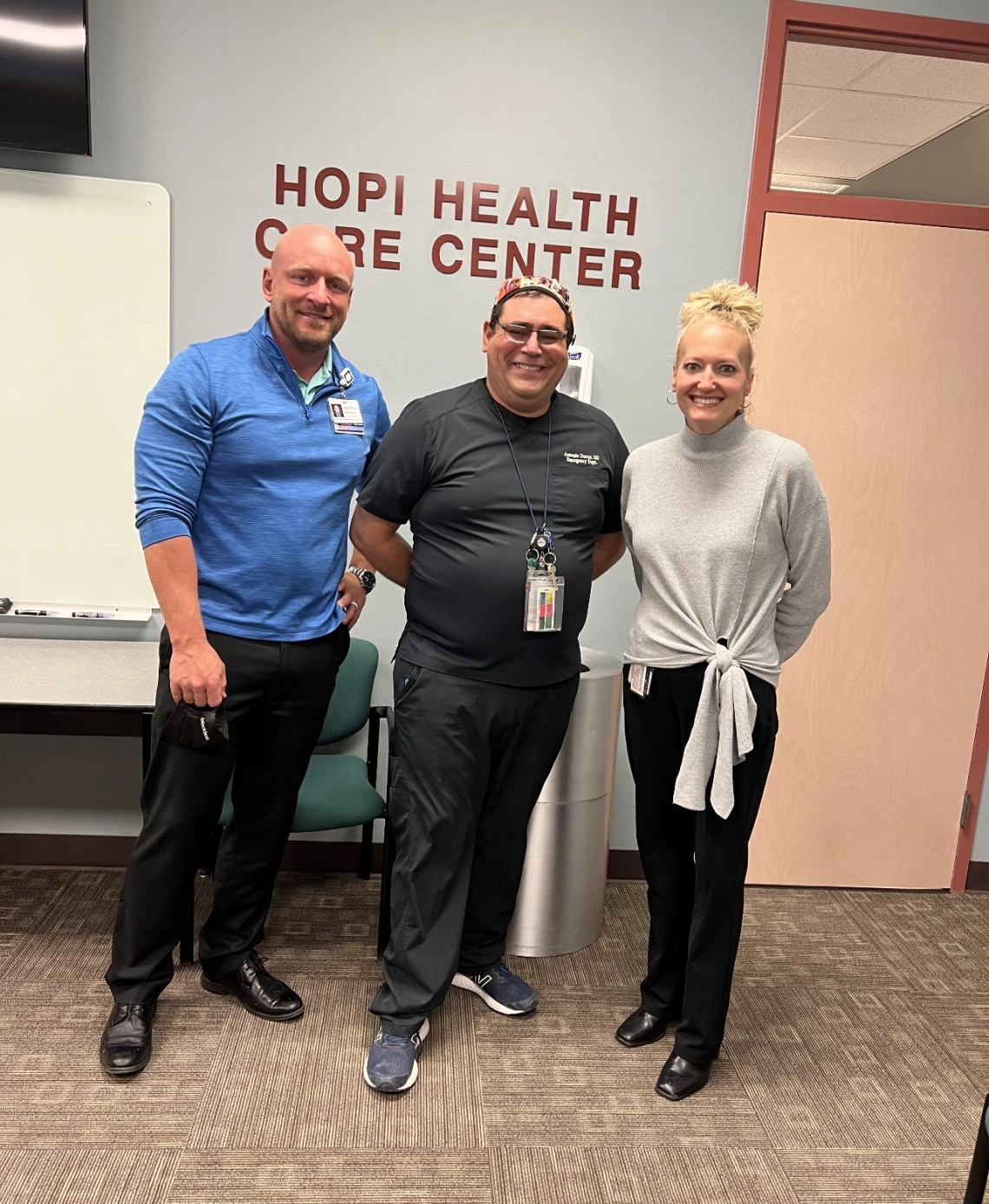Critical Rural Hospital Resource Hub Seeks Additional Staffing

A vital resource rub for rural hospitals in Arizona is reaching out to fill key roles in coordinating acute medical care transfers for patients in need of specialty care.
The Arizona Resource Equity and Access Coordinator Hub, or AZ REACH, fills a critical need for 22 rural hospitals throughout the state of Arizona when their patients require a higher level of care or a medical specialty not available within their hospital. Almost two in five Arizonans live in an area by the federal government as having health care shorta ges.
ges.
The challenge of transferring patients to other facilities is exacerbated during times of high hospital occupancy and can strain hospital resources and hinder efforts to complete transfers in a timely manner.
Since last December, AZ REACH has coordinated over 2,000 patient transfers to in-state and out-of-state facilities with the resources available to address health care emergencies. The program operates out of the Arizona Poison and Drug Information Center and physically resides on the R. Ken Coit College of Pharmacy campus in Phoenix.
Shannon Spotts, RN, BSN, is the registered nurse program director for AZ REACH. She said rural hospitals, facilities categorized as Indian Health Services, Tribal 638, and critical access hospitals, typically have limited resources to provide specialty services for patients.
“One facility we visited only had a physician and two nurses,” she said. “Most don’t have specialists. Many don’t have ICU beds or cardiac monitoring, and some don’t even have liquid oxygen or blood products.”
In a situation when a hospital needs to transfer a patient to receive the care they need, there may not be a staff member available to immediately facilitate a transfer.
“Some take four hours to get a patient moved, which is too long in an emergency situation,” Spotts said. “AZ REACH coordinates everything from time sensitive life and limb transfer needs, such as strokes and heart attacks, to stable non-emergent transfer needs, such as a patient with a fractured hand needing specialty services.”
AZ REACH fills in the gaps in healthcare in underserved areas, and the program is seeking new staff members to cover critical evening shifts during weekdays and weekends. The coordinator role does require medical experience and knowledge.
In the day-to-day operations, staff will receive a call from a sending facility’s health unit coordinator, registered nurse or physician. They will obtain and document demographic and clinical information, identify and initiate contact with an appropriate facility for placement, coordinate provider to provider calls, and then obtain and release bed assignments to the sending facility so they can proceed with transporting the patient.
“It’s very rewarding when you realize how small some hospitals are and how much you are helping them,” Spotts said. “This role offers anyone interested in medicine a great opportunity to gain a broad knowledge base around all types of diagnoses, medical treatments provided and needed, and the types of specialists required in a medical situation.”
Source article: https://www.pharmacy.arizona.edu/news/2023/critical-rural-hospital-reso…

